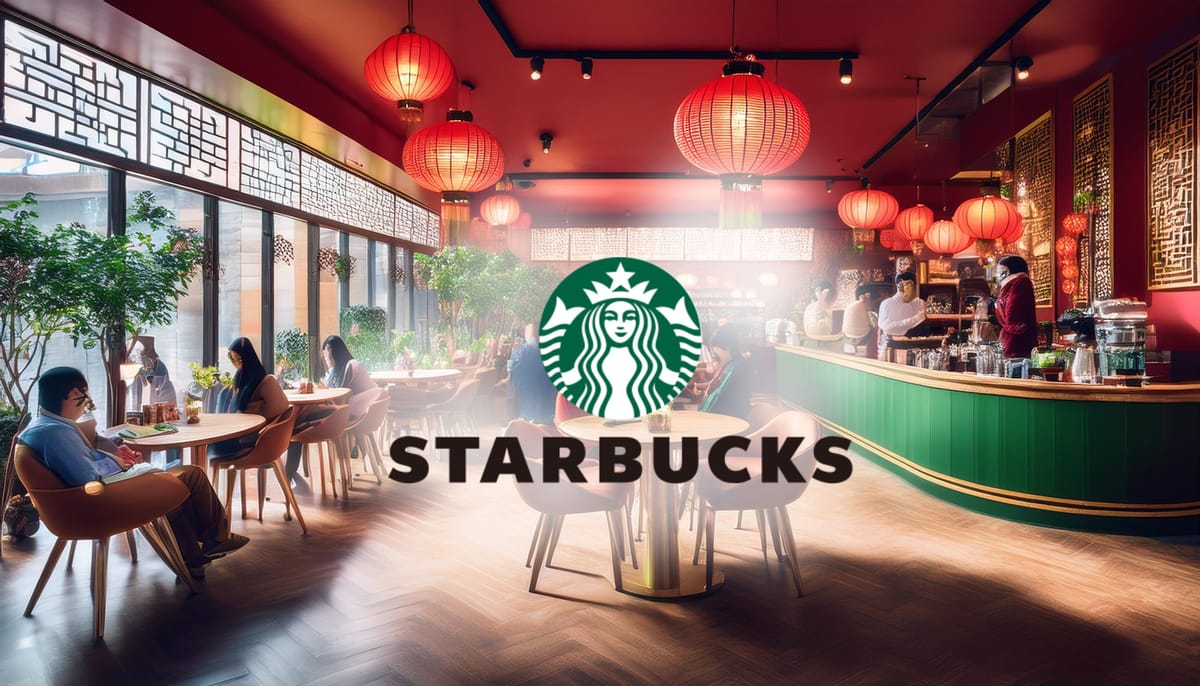The coffee industry has undergone significant transformations in recent years, with the coffee market continuing to expand at an impressive rate. As a global leader in the coffee market, Starbucks has long dominated the landscape. However, the company now faces competition from various players, ranging from established brands to independent coffee shops. This comprehensive analysis delves into the dynamic world of Starbucks competitors, exploring how these companies are reshaping the coffee market and challenging the industry giant.
The Current State of the Coffee Market
The coffee market continues to grow, with projections indicating a steady increase in global consumption. This growth has attracted numerous players, each vying for a piece of this lucrative industry. From large coffee chains to small, independent coffee shops, the market is becoming increasingly diverse and competitive.
Key Statistics:
- Global coffee market value: Expected to reach $34 billion by 2029
- Annual growth rate: Approximately 4%
- Starbucks market share: 39.3% of the US retail coffee market
Starbucks: The Reigning Coffee Giant
Starbucks remains the undisputed leader in the coffee industry, with its strong brand recognition and vast network of locations. The company's success can be attributed to several factors:
- Extensive global presence
- Consistent quality across locations
- Strong brand loyalty
- Diverse product offerings
- Successful rewards program
Starbucks by the Numbers:
- Over 39,000 stores worldwide
- Present in more than 75 countries
- 85% of revenue from company-operated stores
Despite its market dominance, Starbucks faces competition from various players in the coffee industry. Let's explore some of the key competitors challenging Starbucks' position.

Dunkin' Brands: The Everyman's Coffee Shop
Dunkin' Brands, particularly Dunkin' Donuts, has emerged as a strong competitor to Starbucks in recent years. With its focus on affordability and accessibility, Dunkin' has positioned itself as the coffee shop for the everyday person.
Dunkin' Brands Strategy:
- Competitive pricing
- Wide range of coffee products
- Expansion into premium coffee market
- Strong presence in grocery stores
- Emphasis on breakfast sandwiches and other food items
Dunkin' Brands has grown significantly in the past few years, establishing itself as a major competitor in the coffee market. The company's success can be attributed to its ability to balance traditional offerings with innovative products, such as cold brews and frozen beverages.
Dunkin' Brands Performance:
- Over 13,700 locations across nearly 40 markets
- 26.4% market share in the US retail coffee market
- 5.1% increase in same-store sales in the latest quarter
As part of Inspire Brands, Dunkin' now benefits from the resources and expertise of a larger organization, potentially strengthening its competitive advantage in the fast food and coffee sectors.
Costa Coffee: The International Challenger
Costa Coffee, a global tea brand turned coffee giant, has been making waves in the coffee industry. With its strong presence in international markets, particularly in Europe and Asia, Costa Coffee presents a significant challenge to Starbucks' global dominance.
Costa Coffee's Strengths:
- Extensive international presence
- Diverse menu including coffee and tea offerings
- Focus on sustainability and ethical sourcing
- Strong brand recognition in key markets
While Costa Coffee may not have the same level of brand recognition as Starbucks in the United States, its strong performance in other markets makes it a formidable competitor on the global stage.
Dutch Bros: The Rising Star
Dutch Bros has emerged as an exciting player in the coffee market, particularly in the western United States. Known for its friendly baristas and unique blends, Dutch Bros has been gaining market share and challenging established players like Starbucks.
Dutch Bros' Key Features:
- Drive-thru focused business model
- Emphasis on customer service and company culture
- Innovative coffee products and energy drinks
- Rapid expansion in recent years
Dutch Bros' success demonstrates the potential for new entrants to disrupt the coffee market and compete effectively with industry giants like Starbucks.
Independent Coffee Shops: The Local Challengers
While large chains dominate much of the coffee market, independent coffee shops continue to play a crucial role in challenging Starbucks and other major players. These small businesses often cater to customers' individual preferences and offer unique experiences that set them apart from larger chains.
Advantages of Independent Coffee Shops:
- Ability to offer unique blends and specialty coffee
- Focus on local communities and personalized service
- Flexibility to adapt quickly to changing trends
- Often perceived as more authentic and artisanal
In urban areas like New York City, independent coffee shops compete directly with Starbucks locations, offering alternatives to customers seeking a more personalized coffee experience.
Other Notable Competitors
Peet's Coffee
Peet's Coffee has established itself as a strong competitor in the premium coffee market. Known for its high-quality coffee roasting and unique blends, Peet's offers an alternative to Starbucks for discerning coffee enthusiasts.
Tim Hortons
Popular in Canada and parts of the United States, Tim Hortons competes with Starbucks through its combination of coffee offerings and food items. The company's strong brand loyalty in certain regions makes it a formidable competitor.
The Coffee Bean & Tea Leaf
With its focus on both coffee and tea products, The Coffee Bean & Tea Leaf presents a diverse menu that appeals to a wide range of customers. Its presence in international markets also positions it as a global competitor to Starbucks.
<img src="/api/placeholder/600/400" alt="Collage of various coffee shop logos" />
Competitive Landscape in the Grocery Sector
The competition between coffee brands extends beyond physical locations to grocery stores and retail outlets. In this space, Starbucks faces competition from both specialty coffee brands and more traditional players:
- Maxwell House: A long-standing brand with a strong presence in grocery stores
- Folgers: Another well-established brand competing in the instant coffee market
- Peet's Coffee: Offering whole bean and ground coffee for home brewing
- Dunkin' Brands: Expanding its retail presence with a coffee line in grocery stores
<img src="/api/placeholder/600/400" alt="Coffee aisle in a grocery store" />
This competition in the retail sector highlights the importance of brand recognition and product diversification in the coffee market.
Emerging Trends and Future Outlook
As the coffee market continues to evolve, several trends are shaping the competitive landscape:
- Increased focus on sustainability and ethical sourcing
- Growing demand for premium and specialty coffee
- Rise of subscription services for at-home brewing
- Expansion of cold brew and nitro coffee offerings
- Integration of technology in the coffee shop experience
These trends present both challenges and opportunities for Starbucks and its competitors. Companies that can effectively adapt to these changes while maintaining their core strengths will be well-positioned for success in the future.
Conclusion: The Future of the Coffee Market
As we've seen, the coffee industry is a dynamic and highly competitive space. While Starbucks remains the dominant player, it faces significant challenges from a diverse array of competitors. From established brands like Dunkin' and Costa Coffee to rising stars like Dutch Bros and independent coffee shops, the market is becoming increasingly fragmented.
The success of these competitors demonstrates that there's room for multiple players in the coffee market. Each company offers something unique, whether it's lower prices, unique blends, or a different customer experience. This diversity benefits consumers, providing them with more choices and driving innovation across the industry.
Looking ahead, the coffee market is likely to continue its growth trajectory. Companies that can balance quality, convenience, and value while adapting to changing consumer preferences will be best positioned to succeed. Whether it's through strategic initiatives, product innovation, or expansion into new markets, the competition in the coffee industry shows no signs of slowing down.
As the battle for coffee supremacy continues, one thing is clear: the real winners are the customers, who now have more options than ever to satisfy their caffeine cravings.
Frequently Asked Questions
Who is Starbucks' biggest competitor?
While competition varies by market, Dunkin' Brands (particularly Dunkin' Donuts) is often considered Starbucks' biggest competitor, especially in the United States. With its extensive network of franchise locations and strong brand recognition, Dunkin' presents a significant challenge to Starbucks in many regions.
Who competes with Starbucks in NYC?
In New York City, Starbucks faces competition from a diverse range of coffee shops:
- Local chains like Gregory's Coffee and Joe Coffee Company
- Independent coffee shops, which are numerous in NYC
- Other national chains with a presence in the city, such as Dunkin' and Peet's Coffee
- High-end, specialty coffee shops catering to coffee enthusiasts
The competitive landscape in NYC is particularly intense due to the city's coffee culture and the high density of coffee shops.
Who are the competitors of coffee shops?
Coffee shops face competition from various sources:
- Other coffee chains (e.g., Starbucks, Dunkin', Costa Coffee)
- Independent coffee shops
- Fast food restaurants offering coffee (e.g., McDonald's, Burger King)
- Convenience stores and gas stations selling coffee
- Home brewing options, including subscription services
- Cafes and bakeries that serve coffee alongside food items
The diverse nature of these competitors reflects the broad appeal of coffee and the many ways consumers can obtain their daily caffeine fix.
Is Dutch Bros a Starbucks competitor?
Yes, Dutch Bros is increasingly seen as a strong competitor to Starbucks, particularly in the western United States. While it started as a small, regional chain, Dutch Bros has grown significantly in the past few years, expanding its presence and gaining market share.
Key factors that make Dutch Bros a notable Starbucks competitor include:
- Its drive-thru focused model, which appeals to customers seeking convenience
- A strong emphasis on customer service and company culture
- Unique coffee blends and energy drink offerings that differentiate it from traditional coffee shops
- Rapid expansion, with plans to continue growing its number of locations
While Dutch Bros may not yet match Starbucks in terms of size or global presence, its growth and popularity, especially among younger consumers, make it a significant player in the competitive coffee market.





